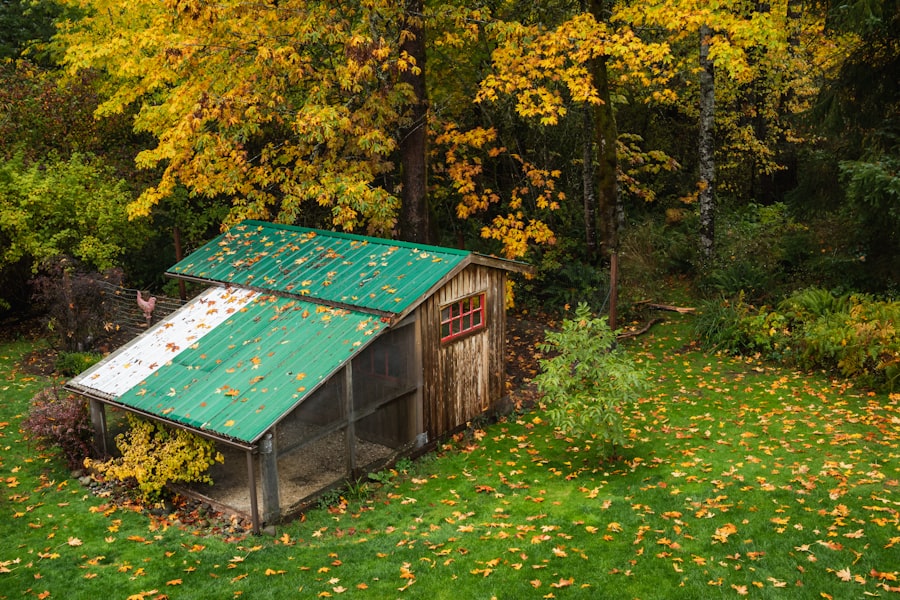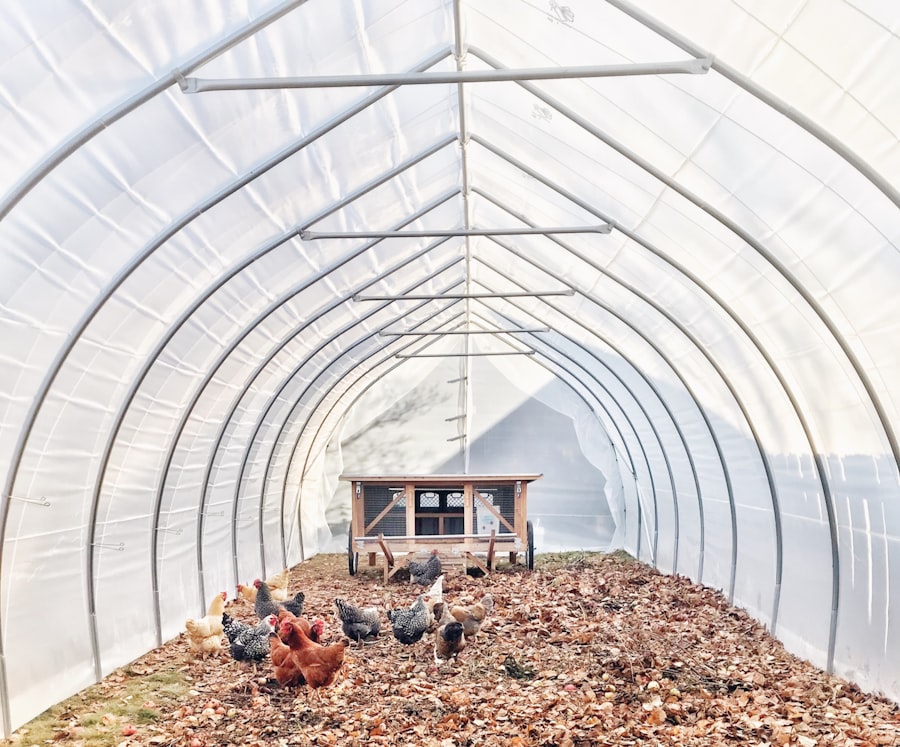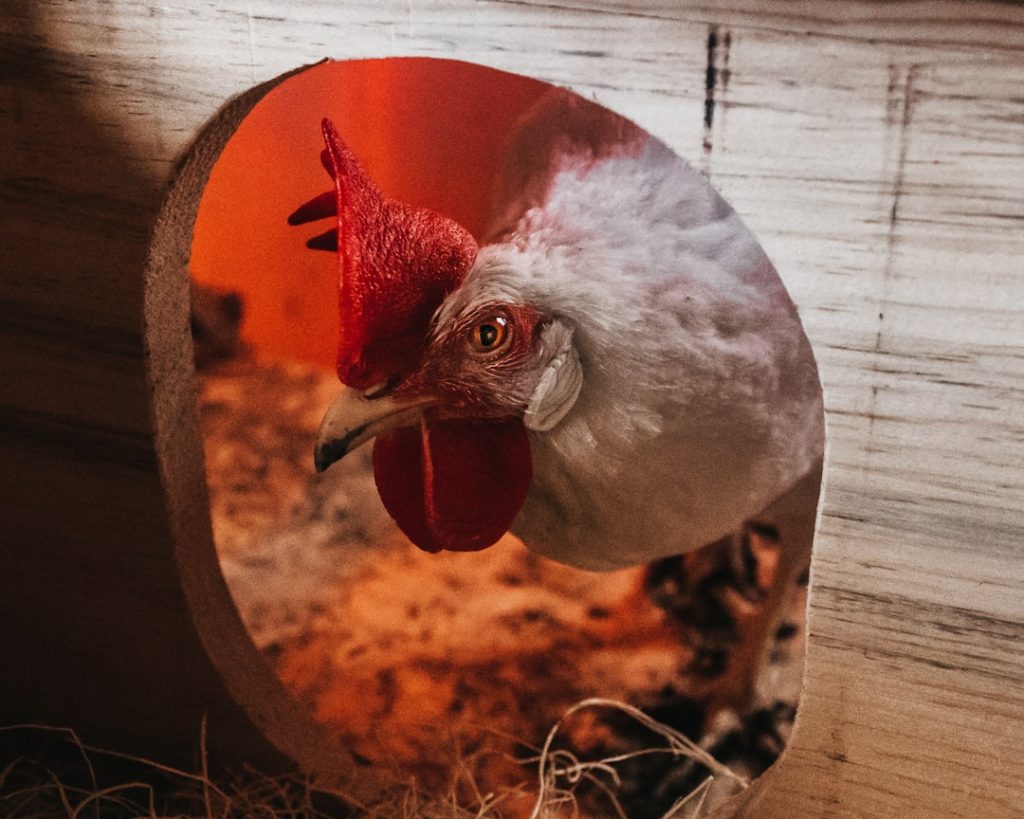When selecting a chicken coop, several factors must be considered. The size of the coop is crucial, with a recommended minimum of 2-3 square feet per bird, though more space is beneficial if possible. Climate considerations are important, as coops in harsh environments may require thicker walls and better insulation.
The coop’s layout and design should include adequate roosting and nesting areas, as well as easy access to food and water. Ease of cleaning is another important factor, with removable floors or trays being advantageous for maintenance. Material choice is significant.
Wood offers natural insulation but may be prone to decay. Metal or plastic coops can be more durable and easier to clean but may provide less insulation. The ideal coop depends on specific needs and preferences.
Thorough research and consideration of all options are essential to ensure a safe and comfortable environment for chickens. A well-chosen coop will contribute significantly to the health and well-being of the flock over time.
Table of Contents
Key Takeaways
- Choose a coop that provides at least 2-3 square feet of space per chicken and is well-ventilated
- Keep the coop clean by regularly removing droppings and replacing bedding
- Provide roosting bars and nesting boxes for chickens to rest and lay eggs
- Ensure easy access to food and water for your chickens at all times
- Protect the coop from predators by using sturdy fencing and secure latches
Providing adequate space and ventilation
The Importance of Space
Chickens need plenty of room to move around, stretch their wings, and engage in natural behaviors like scratching and dust bathing. Overcrowding can lead to stress, aggression, and an increased risk of disease, so it’s essential to provide enough space for your birds to live comfortably. As a general rule, you should allow for at least 2-3 square feet of space per bird inside the coop, as well as plenty of room in the outdoor run if you have one.
Ventilation: A Crucial Aspect of Coop Design
In addition to providing enough space, it’s also crucial to ensure that the coop has proper ventilation. Good ventilation helps to remove excess moisture, ammonia, and other airborne pollutants from the air, which can help prevent respiratory issues and other health problems in your flock. Ventilation can be achieved through windows, vents, or other openings in the coop that allow for air circulation without creating drafts.
Striking a Balance
It’s important to strike a balance between providing enough ventilation without exposing your birds to cold drafts or excessive heat, so consider the climate in your area and make adjustments as needed. By ensuring that your coop is spacious and well-ventilated, you can help prevent stress, disease, and other issues that can arise from overcrowding and poor air quality.
Conclusion
Take the time to evaluate your coop’s design and make any necessary adjustments to ensure that your flock has plenty of room to thrive. By providing a healthy environment, you can help your chickens live happy and healthy lives.
Maintaining cleanliness and hygiene in the coop

Maintaining cleanliness and hygiene in the chicken coop is essential for the health and well-being of your flock. A clean coop helps to prevent the spread of disease, reduce odors, and create a more comfortable living environment for your birds. To keep your coop clean, start by regularly removing droppings and soiled bedding from the floor and nesting boxes.
This can be done using a shovel or rake, or by using a deep litter method that allows droppings to decompose naturally over time. Additionally, you’ll want to regularly replace bedding material to keep the coop dry and odor-free. In addition to regular cleaning, it’s important to periodically deep clean the entire coop to remove any built-up dirt, dust, or debris.
This may involve scrubbing surfaces with a mild detergent, rinsing with water, and allowing everything to dry thoroughly before adding fresh bedding. It’s also important to regularly inspect the coop for signs of mold, mildew, or pest infestations, as these can all contribute to poor hygiene and health issues for your flock. Finally, consider implementing biosecurity measures to prevent the introduction of disease-causing pathogens into your coop.
This may include quarantining new birds before introducing them to your existing flock, limiting visitors to your coop, and practicing good hygiene when handling your chickens or their eggs. By taking these steps to maintain cleanliness and hygiene in your coop, you can help ensure that your flock remains healthy and happy.
Ensuring proper roosting and nesting areas
Proper roosting and nesting areas are essential for the comfort and well-being of your chickens. Roosting bars should be provided at a height of at least 2-4 feet off the ground, with enough space for each bird to comfortably perch without crowding or competing for space. The bars should be wide enough for chickens to grip with their feet, but not so wide that they can’t wrap their toes around them for stability.
Additionally, roosting bars should be positioned away from nesting boxes to prevent chickens from sleeping in them and soiling the eggs. Nesting boxes should be located in a quiet, dark area of the coop to provide privacy and encourage hens to lay their eggs. Each nesting box should be large enough for a hen to comfortably enter and turn around, with plenty of clean bedding material to cushion the eggs.
It’s also important to regularly collect eggs from the nesting boxes to prevent them from becoming soiled or broken. In summary, ensuring proper roosting and nesting areas is crucial for the comfort and productivity of your flock. By providing well-designed roosting bars and nesting boxes, you can help prevent behavioral issues, reduce stress, and encourage healthy egg production in your chickens.
Providing access to food and water
Providing access to food and water is essential for the health and well-being of your chickens. Chickens require a balanced diet that includes a mix of grains, protein, vitamins, and minerals to support their growth, egg production, and overall health. Additionally, access to clean water is crucial for hydration, digestion, and regulating body temperature.
When it comes to feeding your chickens, it’s important to provide a balanced diet that meets their nutritional needs. This may include commercial chicken feed supplemented with kitchen scraps, fruits, vegetables, or other treats. It’s also important to provide access to grit or oyster shells to help chickens digest their food and produce strong eggshells.
In addition to providing a balanced diet, it’s important to ensure that your chickens have access to clean water at all times. Water should be provided in clean containers that are free from contaminants like droppings or bedding material. In cold weather, it’s important to prevent water from freezing by using heated waterers or regularly replacing frozen water with fresh supplies.
In summary, providing access to food and water is essential for the health and productivity of your flock. By ensuring that your chickens have a balanced diet and clean water at all times, you can help prevent nutritional deficiencies, dehydration, and other health issues that can arise from poor diet or inadequate hydration.
Protecting the coop from predators

Securing the Coop Structure
To protect your coop from predators, start by securing all openings with sturdy hardware cloth or wire mesh that is too small for predators to squeeze through. This includes windows, vents, doors, and any other openings that could provide access to your birds. Additionally, consider installing predator-proof locks on doors and latches on nesting boxes to prevent predators from gaining entry.
Regular Inspections and Maintenance
It’s also important to regularly inspect the perimeter of the coop for signs of digging or burrowing by predators, as well as any potential entry points that need reinforcement.
Additional Deterrents and Precautions
In addition to securing the physical structure of the coop, it’s important to consider other deterrents such as motion-activated lights or sound devices that can startle predators away from the area. You may also want to consider adding a secure fence around the outdoor run area to provide an additional layer of protection. By taking steps to secure the physical structure of the coop and implementing deterrents as needed, you can help prevent losses due to predation and ensure the safety of your chickens.
Monitoring and managing the health of your chickens
Monitoring and managing the health of your chickens is an ongoing responsibility that requires regular observation and proactive care. Start by getting familiar with what healthy chickens look like so that you can quickly identify any signs of illness or injury. This may include observing their behavior, posture, appetite, droppings, feathers, comb coloration, and overall appearance.
In addition to regular observation, it’s important to establish a relationship with a veterinarian who specializes in poultry care. A veterinarian can provide guidance on preventative care measures such as vaccinations or deworming treatments as well as diagnose and treat any health issues that arise in your flock. Finally, consider implementing biosecurity measures such as quarantining new birds before introducing them to your existing flock or limiting visitors to your coop area.
This can help prevent the introduction of disease-causing pathogens into your flock. In summary, monitoring and managing the health of your chickens is essential for preventing illness and maintaining a healthy flock. By staying vigilant and proactive in caring for your birds’ health needs, you can help ensure that they live long and healthy lives.
If you’re considering keeping chickens in a coop, you may also be interested in learning about how many chickens you need for a family of 4. This article from Poultry Wizard discusses the ideal number of chickens to keep for a family of four, taking into account egg production and consumption. Check it out here.
FAQs
What are the benefits of keeping chickens in a coop?
Keeping chickens in a coop provides them with protection from predators, shelter from the elements, and a designated space for laying eggs. It also helps to keep the chickens contained and prevents them from wandering into areas where they may cause damage.
How big should a chicken coop be?
The size of a chicken coop will depend on the number of chickens being kept. As a general rule of thumb, each chicken should have at least 2-3 square feet of space inside the coop. Additionally, there should be space for nesting boxes, perches, and a run for the chickens to exercise.
What should be included in a chicken coop?
A chicken coop should include nesting boxes for the chickens to lay eggs, perches for roosting at night, adequate ventilation, and a secure door to keep predators out. It should also have a run attached to the coop to allow the chickens to have access to outdoor space.
How do you keep a chicken coop clean?
To keep a chicken coop clean, it’s important to regularly remove soiled bedding, replace it with fresh bedding, and clean the nesting boxes. Additionally, the coop should be thoroughly cleaned and sanitized on a regular basis to prevent the buildup of bacteria and odors.
What should chickens be fed in a coop?
Chickens in a coop should be fed a balanced diet of chicken feed, which typically includes grains, protein, vitamins, and minerals. They can also be given kitchen scraps, fruits, and vegetables as treats, but it’s important to avoid feeding them anything that may be harmful to their health.
Meet Walter, the feathered-friend fanatic of Florida! Nestled in the sunshine state, Walter struts through life with his feathered companions, clucking his way to happiness. With a coop that’s fancier than a five-star hotel, he’s the Don Juan of the chicken world. When he’s not teaching his hens to do the cha-cha, you’ll find him in a heated debate with his prized rooster, Sir Clucks-a-Lot. Walter’s poultry passion is no yolk; he’s the sunny-side-up guy you never knew you needed in your flock of friends!







